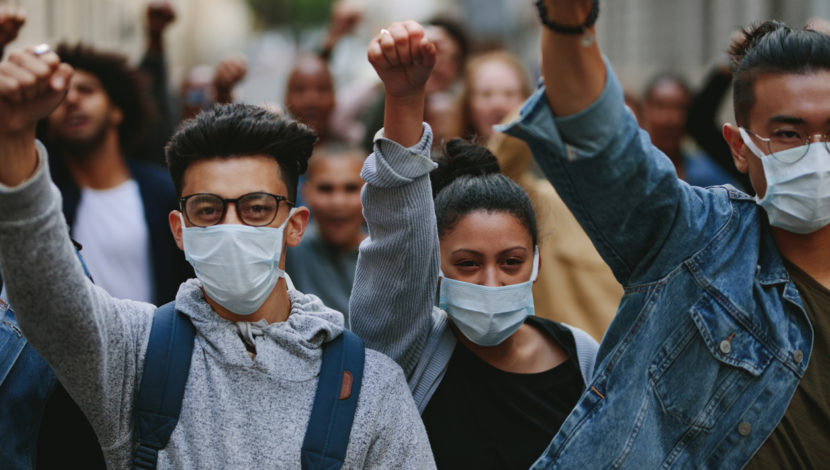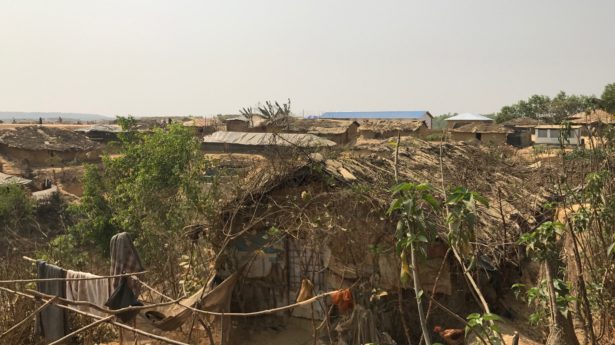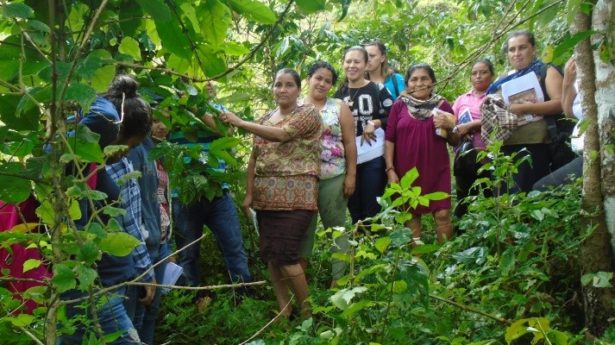The Unitarian Universalist Service Committee advances human rights through grassroots collaborations.
Hope from the Ashes on International Human Rights Day

By on December 9, 2020
December 10—International Human Rights Day—caps a year unlike any other in recent memory. Not only has the COVID-19 pandemic put the health and livelihoods of billions at risk and caused nearly 1.5 million deaths, the knock-on effects of the virus have also been disastrous for human rights. Around the globe, authoritarians and demagogues have seized on the crisis as an opportunity to push harmful policies. Racism, xenophobia, antisemitism and religious bigotry fed on the prevailing climate of fear and despair, making new incursions into the mainstream of global politics.
In the United States, the public health crisis served as a pretext for far-right politicians to shut down asylum, even as the U.S. government seeded the globe with COVID-19 cases by carrying out deportations and expulsions in the midst of a pandemic. Anti-Blackness both made the virus more deadly and enabled more police violence and brutality. While the United States did hold an historic and groundbreaking election on November 3, the country’s democratic institutions once again proved frighteningly vulnerable to manipulation by appeals to racism, disinformation, and baseless conspiracy theories.
Nor has the year let up in hardship, as it enters its final months. In November, Myanmar’s elections partly consolidated an apartheid regime from which Rohingya people are still systematically excluded. Countries in Central America are feeling the impact of back-to-back deadly storms: a two-fold disaster set to trigger another refugee crisis in a region already grappling with mass displacement. These catastrophic hurricanes struck even as hundreds of thousands of people face potential deportation to the region due to the Trump administration’s effort to cancel Temporary Protected Status (TPS).
In such a world, it can feel we are very far from living up to the ideals embodied in International Human Rights Day—a date commemorating the ratification of the Universal Declaration of Human Rights (UDHR) in 1948. How are we to recapture the visionary hopes that framed the UDHR when it was first adopted?
While doing so can seem a hard task, we should remember that in 1948, the world would not have outwardly seemed a hopeful place either. In fact, humanity had only just emerged from years of war and genocide, including the Second World War and the Holocaust. They came together to ratify the UDHR not because their world was in good shape as it was, but precisely because it needed a new birth of hope.
As December 10 dawns on a new day and—almost—a new year, we celebrate the flowering of hope that is possible even amidst the ashes of injustice and suffering. The following are only a few examples we look to from UUSC’s recent work:
- At the same time as the Rohingya people of Burma are being disenfranchised by their own government, they are also organizing across borders and continents to hold that government accountable. The efforts of Rohingya activists are bearing fruit in the historic case The Gambia v. Myanmar before the International Court of Justice (ICJ), seeking redress for the Burmese military’s genocide against the Rohingya people. UUSC’s partners at the Burma Rohingya Organization UK are working actively to monitor Burma’s compliance with the ICJ’s orders and ensure the international community speaks with one voice to demand Myanmar authorities honor their obligations.
- Even as Indigenous communities on the U.S. coastline face displacement due to climate injustice, they have built a coalition spanning Louisiana to Alaska to bring their case before the global community. Working with UUSC researchers, they submitted an official complaint to the UN Special Rapporteur on the Rights of Indigenous Peoples earlier this year, citing the U.S. government’s failure to protect communities from the ravages of climate impacts and to respect their right to self-determination. On November 17, the communities received a formal response from the Special Rapporteur acknowledging the seriousness of the allegations—an early but vital step toward compelling the U.S. government to uphold its obligations.
- And even as immigrants with TPS face the nightmare of deportation to countries experiencing humanitarian crisis and of potential separation from their families, they are building solidarity across 13 different nationalities and multiple languages, working together to defend their right to stay with their loved ones. Most recently, UUSC’s partner the National TPS Alliance completed an 8-week-long bus tour across the country, stopping for socially-distanced events in communities nationwide, highlighting TPS holders’ life-saving contributions as essential workers during the pandemic, and calling for a path to permanent residency for all TPS immigrants.
All of these acts of courage reflect a willed determination to hope even in the face of adversity and injustice. This radical hope is needed more than ever in a year like 2020. Even as we mourn the lives lost to COVID-19, climate-induced disasters, and the myriad injustices we have faced this year, we also share the vision that first activated the signers of the UDHR: that we may see—and make—a rebirth of hope from the ashes.
***
About UUSC: Guided by the belief that all people have inherent worth and dignity, UUSC advances human rights globally by partnering with affected communities who are confronting injustice, mobilizing to challenge oppressive systems, and inspiring and sustaining spiritually grounded activism for justice. We invite you to join us in this journey toward realizing a better future!
Photo Credit: iStock – jacoblund

